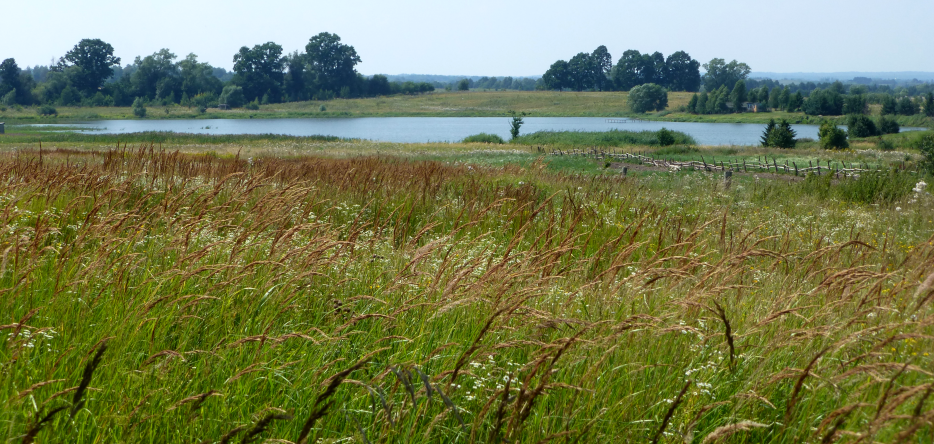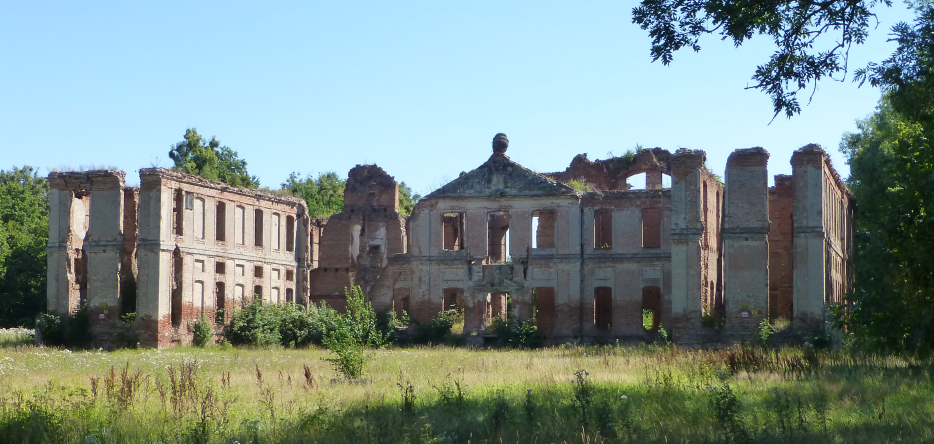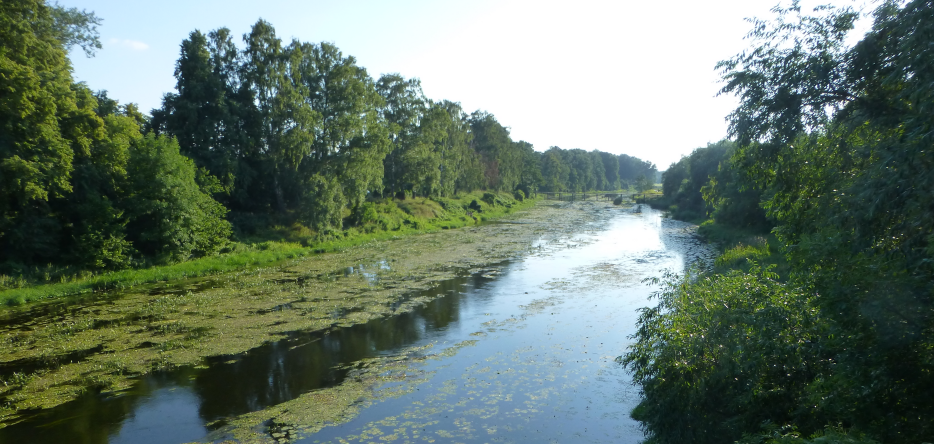January 1807
1st January 1807 – Napoleon 1st met Maria Walewska for the first time.
5 January 1807 – The city of Breslau [nowadays Wrocław] surrendered.
7 January 1807 – The British government reacted to the Berlin decree of 21 November 1806 by blocking all ports of France and French colonies.
10 January 1807 ‒ The siege of Schweidnitz by Dominique-Joseph René Vandamme began.
13 January 1807 – Poland was entirely evacuated by the Russians. From Warsaw [Warszawa], Napoleon decreed that: The bridge built over the Seine opposite the Champ-de-Mars, in Paris, would be called the Pont d'Iéna .
29 January 1807 – End of winter quarters for the French army.
30 January 1807 – Napoleon left Warsaw.
February 1807
8 February 1807 – Battle of Preussisch-Eylau.

12 February 1807 – Fight of Marienwerder.
15 February 1807 – The city of Schwednitz was taken by French army.
16 February 1807 – Battle of Ostrolenka.
19 February 1807 – Fight of Neugardt.
24 February 1807 – Battle of Glatz [today Kłodzko], which ended up capitulating to General Vandamme.
25 February 1807 – Fight of Peterswald.
26 February 1807 – Taking of Braunsberg.
March 1807
6 March 1807 – Fight of Wittemburg.
7 March 1807 – Fight of Zecheren.
12 March 1807 – Start of the siege of Danzig [today Gdansk].
20 March 1807 – Five legions of reserves were created, composed of conscripts from 1808; they had to defend the borders and coasts of the French Empire.
April 1807
1st April 1807 – The Castle of Finckenstein [53.76722, 19.37544], in East Prussia [todau in Poland] became the headquarters of Napoleon.

7 April 1807 – Class 1808 (80,000 men) was called in advance.
15 April 1807 – From Napoleon 1 to Joseph Fouché: We must give the public a firmer direction... There is no question of talking incessantly about peace. This is the good way not to have it, but to implement protective measures on all points
.
25 April 1807 – A new alliance was signed between the King Frederick William III of Prussia and the Emperor Alexander I of Russia at Bartenstein. They undertook not to deal with Napoleon before France has been reduced to the boundary of the river Rhine.
27 April 1807 ‒ The Emperor received the Persian ambassador, Mirza Rezay, at Finckenstein .
May 1807
4 May 1807 – A pact of friendship was signed at Finckenstein between France and Persia.
17 May 1807 – The sword of Frederick the Great solemnly entered the Invalides in Paris.
26 May 1807 – City of Danzig surrendered to Marshal Lefebvre.
June 1807
6 June 1807 – Napoleon left Finckenstein and entered into campaign.
14 June 1807 – Battle of Friedland.

16 June 1807 – French entered Königsberg [nowadays Kaliningrad] .
19 June 1807 – Arrival of Napoleon at Tilsit [Sovetsk].
21 June 1807 – A one-month truce with Russia was signed in Tilsit.
25 June 1807 – Two Emperors Napoleon and Alexander I met on a raft in the middle of the river Niemen .
28 June 1807 – King of Prussia arrived in Tilsit.
29 June 1807 – The three monarchs held a friendly conference.
July 1807
4 July 1807 – In the Mercure de France (a french newspaper): In vain Nero prospers... Tacitus is already born in the Empire
, signed: François-René de Chateaubriand.
6 July 1807 – The Queen Louise of Prussia arrived at her turn at Tilsit; she was received by Napoleon .
8 July 1807 – The Peace Treaty of Tilsit and a Franco-Russian alliance were signed.
9 July 1807 – Napoleon I left Tilsit.
21 July 1807 – Prefects of the French Empire were ranked by results obtained in hunting for draft evaders.
22 July 1807 – The Great-Duchy of Warsaw was created.
27 July 1807 – Return of Napoleon at Saint-Cloud.
29 July 1807 – An army of 20,000 men was gathered in Bayonne (Southwest France) in order to invade Portugal, which was still trading with England.
August 1807
9 August 1807 – Talleyrand left the Foreign Ministry.
11 August 1807 – The King of Denmark received from the British government summons to join the anti-French coalition.
15 August 1807 – A Te Deum was sung at Notre-Dame-de-Parise , on the occasion of Napoleon's bithday and to celebrate peace, Napoleon himself attending.
18 August 1807 – Jerome Bonaparte, Napoleon's youngest brother, was named King of Westphalia.
19 August 1807 – The Tribunat was removed by Senatus consultum. Its powers were transferred to the Legislative Corps.
22 August 1807 ‒ Wedding of Jérôme Bonaparte and Princess Catharina of Württemberg .
27 August 1807 – Note of Napoleon to Emmanuel Crétet, Minister of Interior: Caring for the Imperial Library, first by organizing it. We need a leader for all.
September 1807
2nd September 1807 – Bombing of Copenhagen [København] by the English .
3rd September 1807 – The interest rate of money was limited by law to five percent in civil and six per cent in trade.
7 September 1807 – Copenhagen surrendered to the English.
11 September 1807 – The french Commercial Code was published.
14 September 1807 – Surrender of the British expeditionary force in Egypt to Muhammad Ali.
16 September 1807 – The Court of Auditors was created in Paris.
October 1807
10 October 1807 – A treaty outlining the boundaries between the Austrian provinces and the Kingdom of Italy was signed.
12 October 1807 – General Jean-Andoche Junot was ordered to cross the Spanish border, within twenty-four hours, and to invade Portugal.
14 October 1807 – Napoleon established measures to be taken by allies of France in order to maintain the continental blockade.
15 October 1807 – From Napoleon to the ambassador of Portugal: If Portugal does not do what I want, the House of Braganza will no longer reign in Europe in two months
.
17 October 1807 – The French army entered Spain after crossing the Pyrenees Mountains.
20 October 1807 – The British evacuated Copenhagen, but took the Danish fleet. Portugal officially declared war to England.
22 October 1807 – A secret alliance was concluded between Portugal and England.
27 October 1807 – A secret treaty of Fontainebleau between France and Spain planned the sharing of Portugal.
November 1807
1st November 1807 – A Superintendent of entertainment was created; the four main theaters of the capital would be under his authority.
11 November 1807 – An English government injunction required all neutral ships to pass through England before landing on the continent.
13 November 1807 ‒ General Pierre Dupont de l'Etang entered Spain with an army of 25,000 men.
16 November 1807 – Napoleon I left for Milan [Milano].
23 November 1807 – In Milan he took the following decree: Any ship, under any flag whatever, having been visited by English or having entered a port in England, will be considered as English and treated as such
.
29 November 1807 – Prince Regent of Portugal and his family boarded for Brazil on a British ship.
30 November 1807 – The French entered Lisbon [Lisboa].
December 1807
3rd December 1807 – The twenty richest merchants and bankers of Lisbon subscribed to a forced loan of two million Cruzadas.
14 December 1807 – Inauguration of the French flag in Lisbon, which caused a popular riot.
19 December 1807 ‒ Occupation of Livorno by General Sextius Alexandre François de Miollis and the French army.
20 December 1807 ‒ Eugène de Beauharnais became Prince of Venice [Venezia].
22 December 1807 ‒ The United States of America declared an embargo on French and English vessels and products.
23 December 1807 – Portugal was imposed a contribution of one hundred million Francs.